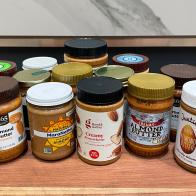3 Eating Strategies to Combat Stress-Induced Inflammation
The connection between inflammation and stress is often overlooked.

eyecrave productions/Getty Images
Stress has become an almost accepted part of our everyday lives. From demanding jobs to family responsibilities and constant digital distractions, stressors are all around us. When stress becomes chronic, it can have a profound impact on our bodies and can significantly influence inflammation. Understanding this connection and how to navigate it through nutrition and lifestyle adjustments can be incredibly beneficial for stress reduction and overall well being.
The Stress-Inflammation Connection
When we encounter stress, our bodies initiate a “fight or flight” response, releasing stress hormones such as cortisol and adrenaline. In the short term, this response is beneficial, helping us to react quickly to immediate threats. However, when stress becomes chronic, the continuous release of these hormones can lead to a state of prolonged inflammation.
Inflammation is the body’s natural defense mechanism against injury and infection. While acute inflammation is essential for healing, chronic inflammation can be detrimental. Although the connection is still not fully understood, stress can induce or worsen cardiovascular disease, liver disease, depression, neurodegenerative disease and cancer through peripheral and neurological inflammation. Chronic stress contributes to this harmful inflammation by consistently activating the immune system, which, over time, can damage healthy tissues and organs.
It’s important to note that you should talk with your healthcare provider and explore the underlying reasons for chronic inflammation, since it may go beyond lifestyle and nutrition. There are inflammatory conditions that require medical intervention and may even benefit from medication. If that is the case, you can still make certain lifestyle and nutrition changes in combination with the recommended medical intervention.

Capturastock/Getty Images
Nutritional Strategies to Combat Stress-Induced Inflammation
One of the most effective ways to mitigate the impact of chronic inflammation is through nutrition. Here are three nutrition approaches:
Incorporate More Plant Foods
Foods rich in antioxidants may help counteract the impact of chronic stress and inflammation. Some of these include:
- Fruits and Vegetables: Berries, leafy greens, tomatoes and bell peppers are high in antioxidants and vitamins that help mitigate the effects of inflammation.
- Healthy Fats: Omega-3 fatty acids are not just found in fatty fish (like salmon and mackerel). You can also find them in flaxseeds, chia seeds and walnuts.
- Whole Grains: Foods like quinoa, brown rice and oats are high in fiber and can help regulate blood sugar levels.
- Herbs and Spices: Turmeric, ginger and garlic have potent anti-inflammatory properties.
Limit Ultra-Processed Foods
Most foods are processed, which is actually a good thing from a food safety perspective. However, there are foods that go through multiple levels of processing, and as a result, are low in essential vitamins and minerals and high in things like added sugar and salt. Diets high in ultra-processed foods have been linked to immune dysregulation and chronic disease. Aim to limit refined sugars and carbohydrates along with processed meats high in sodium and nitrates.
Stay Hydrated
Proper hydration is essential for maintaining optimal body functions, which can help to reduce your risk for chronic inflammation. Aim to drink at least eight glasses of water a day, and more if you’re physically active or live in a hot climate.

Peter Cade/Getty Images
Lifestyle Changes to Reduce Stress and Inflammation
In addition to dietary changes, incorporating stress-reducing practices into your daily routine can significantly impact your inflammation levels.
Regular Physical Activity: Exercise is a powerful tool in reducing stress and inflammation. It helps lower cortisol levels and releases endorphins, which are natural mood elevators. Aim for at least 30 minutes of moderate exercise, such as walking, cycling or yoga, most days of the week.
Mindfulness and Relaxation Techniques: Practices like meditation, deep breathing exercises and mindfulness can help manage stress levels. These techniques encourage relaxation and can reduce the body’s inflammatory response. Even just a few minutes a day can make a significant difference.
Adequate Sleep: Quality sleep is essential for stress management. Aim for seven to nine hours of uninterrupted sleep per night. Establish a regular sleep routine by going to bed and waking up at the same time each day, and create a calming bedtime environment.
Social Connections: Strong social ties and a supportive network can help buffer the effects of stress. Make time for friends and family, engage in social activities and seek support when needed. Social interactions can provide emotional support and a sense of belonging, both of which are crucial for managing stress.
The Role of Professional Support: Sometimes, managing stress and inflammation requires more than just personal efforts. Seeking professional support can be incredibly beneficial. Working with a registered dietitian can help you develop a personalized nutrition plan to address inflammation and stress. Additionally, mental health professionals can provide strategies and tools for effective stress management.
The connection between stress and inflammation is often overlooked, yet it plays a significant role in our overall health. Chronic stress can lead to prolonged inflammation, contributing to various health issues. However, by eating a balanced diet and adopting stress-reducing lifestyle practices, we can mitigate these effects. Remember, managing stress and inflammation is not just about making temporary changes; it’s about adopting a sustainable, holistic approach to health. By taking proactive steps, we can improve our well-being and enhance our quality of life.
Related Content:






























